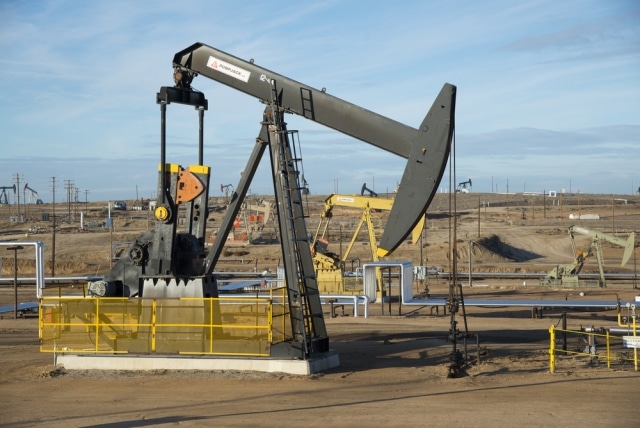Environmentalists filed a motion requesting a preliminary injunction today in a California court to immediately stop the daily illegal injection of millions of gallons of oil field wastewater into protected groundwater aquifers in the state.
Last week, Earthjustice filed a lawsuit on behalf of the Sierra Club and the Center for Biological Diversity in Alameda County Superior Court that challenges California regulators’ emergency rules meant to rein in the state’s disastrous Underground Injection Control (UIC) program.
Officials with the state’s Division of Oil, Gas, and Geothermal Resources (DOGGR) have admitted that their agency improperly permitted more than 2,500 wells to pump oil industry wastewater and fluids from enhanced oil recovery techniques like acidization and steam flooding into groundwater aquifers that should be protected under the federal Safe Drinking Water Act.
Instead of shutting down the offending wells, however, DOGGR issued emergency rules last February that would allow many of them to continue operating until 2017, according to the complaint filed by Earthjustice, which seeks to have the new rules thrown out and the wells operating in protected aquifers shut down while new regulations are being developed.
“Both the emergency regulations and the status quo fail to protect California’s underground drinking water sources from harm,” the complaint states. “Since DOGGR continues to fail in implementing its regulatory duties, this Court must vacate the emergency regulations and ensure that DOGGR complies with the law by ordering DOGGR to take all immediate action necessary and available to it to meet its obligations to prohibit illegal injection of wastewater into protected aquifers.”
According to Earthjustice staff attorney William Rostov, DOGGR’s emergency regulations, as they’re currently written, would allow oil companies to continue operations that are in violation of both state and federal law – at a time when California is suffering a water-scarcity crisis caused by the epic, climate-exacerbated drought currently gripping the state. Rostov says DOGGR pushed the rules through abruptly, while characterizing any potential interruption to the oil industry’s ability to conduct its illegal injection operations as a public emergency.
“Emergencies are for things like the drought, where we say there’s a public health and welfare emergency and we need to protect the public,” Rostov told DeSmogBlog. “Here it’s just the opposite, DOGGR is saying it’s an emergency that they haven’t been doing their job, so we need to protect the oil industry by saying they should be able to pollute for two more years. The real public emergency is that we have an ongoing drought and they’re allowing industry to continue polluting sources of drinking water.”
In its emergency rule, DOGGR estimates that the affected injection wells and associated facilities are collectively worth $1.3 billion, and that they’re used to dispose of the waste from 4% of California’s oil production, or about 24,000 barrels per day. “The 2553 injection wells potentially affected by this compliance schedule are a significant part of California’s oil production infrastructure, and abrupt disruption of their operation would be detrimental to general welfare,” DOGGR writes.
In a press release, Earthjustice points out that, according to testing done by DOGGR itself in coordination with oil companies, oil field wastewater in California has been shown to contain high levels of benzene, a carcinogen. And given that half of all new wells in California over the past decade have been fracked, oil wastewater often contains fracking fluid, which can contain chemicals that have been linked to a variety of serious human health problems, from cancer to birth defects.
The illegal injections, according to the Center for Biological Diversity, are contaminating underground water in aquifers across the state, from Monterey to Kern county. CBD has created an interactive map of all the well sites in question.
Environmentalists are hardly alone in calling for the wells to be shut down immediately. After holding a hearing on the issue, California legislators called DOGGR’s UIC program “corrupt, inept, and woefully mismanaged,” and sent Governor Jerry Brown a letter arguing that “the decision to allow thousands of injection wells to continue pumping potentially hazardous fluids into protected aquifers is reckless.”
Image Credit: Richard Thornton / Shutterstock.com
Subscribe to our newsletter
Stay up to date with DeSmog news and alerts







